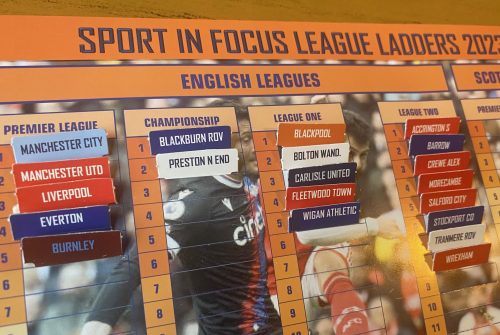Passion projects and basket cases – football finance in focus

The English Football League season kicks off this weekend, and already the state of the finances of North West clubs looks like being a critical factor in a turbulent season.
This week TheBusinessDesk.com will look at the business stories behind the region’s fifteen clubs and those at the most financial risk. and the relative importance to their own communities.
With large dominant football brands in the region, running a club at this level is a unique struggle for fans, sponsors and talent.
Also, regulatory scrutiny has never been tighter.

Dan Wilson, Sedulo
As Dan Wilson, head of sport at business advisors Sedulo told TheBusinessDesk.com, there are plenty of other upsides to football ownership.
“Traditionally football clubs have always been seen as a passion project. The landscape appears to have changed as we have seen traditionally smaller clubs, like Bournemouth, Brentford and Luton Town, go through the lower divisions to the Premier League. There is clearly high value in ownership of a Premier League Club. The audience that the Wrexham story has generated, also highlights what can be done to generate broad appeal, even within Tier 5 of the football pyramid,” he said.
A year from now, a lucrative new domestic rights deal with Sky Sports kicks in.
The deal, which will run from the 2024/25 season until the 2028/29 season, is worth £935m and will broadcast 1059 matches a season in total – a record number of games for any club football agreement.
It will see a 50% increase on the value of the current rights agreement as well as enhanced exposure for all EFL clubs.
Wilson thinks this is one of a number of factors that makes football an investable proposition at this level.
“Then there is the new improved TV rights deal, and a post Covid bounce in attendances that is boosting revenues. We are unsure how long this will last in the current economic environment, but it is, temporarily at least, improving club income.”
“This dynamic has seen football clubs now seen as investment opportunities rather than pure passion projects, this in turn has led to an increased interest in overseas money investing into the game. Lower league owners had traditionally looked to sell to new owners, who would simply be willing to take on the debt and fund future losses, now in some cases they are looking to make a return on their investment.”
However, as we’ll explore through the course of the week, the market is hot to a new type of investor, which brings pressure on the regulator to ensure ‘financial fair play’ but also whether owners don’t wreck these precious community assets when their interest wanes and investment capital runs dry as appeared to be the case with Wigan Athletic this year.
Wilson, who advised on the takeovers of Stockport County and Blackpool in recent years, said the EFL needs to up its game.
“The EFL needs to to offer greater scrutiny and protection to clubs to more fully vet potential owners and their business plans and means to fund such plans, they must ensure that these new investors aren’t taking an investment chance on an organisation at the heart of our communities.
“They should have greater powers to inspect financial information post the transaction, this currently happens, but it is not detailed enough. We cannot be in a position where owners can asset strip clubs, following an unsuccessful tenure. Clubs will always need financial input, but there should maybe be a limit on how much this input as debt or equity. In short, there needs to be tighter controls, and greater power held within the EFL.”
NB: for the purposes of storytelling, we have included Wrexham in the North West.








